University of Zambia lecturer Dr Sishuwa Sishuwa has called for the removal of all Constitutional Court judges for gross misconduct and incompetence.
Commenting on constitutional lawyer John Sangwa’s observation that President Edgar Lungu dribbled Zambians when he appointed unqualified individuals as Constitutional Court judges, Dr Sishuwa agreed.
He said only individuals who meet the constitutional requirements to serve as a judge on the ConCourt: namely, specialised training or experience in human rights or constitutional law and 15 years’ experience as a legal practitioner, should have been chosen to serve on the court.
“The Constitutional Court has the final say on all matters relating to the interpretation of the Constitution including the election of the President, so those serving on it should be qualified, competent and impartial individuals with an intimate knowledge and understanding of the Constitution. The fact is that if a sitting president is able to both rig an election and control the Constitutional Court, it is hard to see how he or she can ever be voted out of office. In appointing unqualified individuals to the court, Lungu may have reasoned that it represented the best way of preparing for any possible legal challenge to his election and the constitutional battles over his eligibility or qualification to stand again.”
Dr Sishuwa argued that the ConCourt judges misconducted themselves during President Lungu’s eligibility case by abandoning the questions that were specifically asked by the applicants.
“Aside the question of their qualification, the judges have shown on more than one occasion that they are an incompetent bunch. One was in relation to the amateurish way in which they handled the election petition in 2016. The latest is in relation to how they handled Chishimba Kambwili’s legal challenge against the decision of the Speaker of the National Assembly to declare his Roan constituency seat vacant. In this case, both parties are claiming victory, on account of the court’s failure to give an unambiguous judgement. Yet another example of the incompetence of the Constitutional Court relates to how they handled the matter of whether President Lungu is eligible to stand for another term of office at the next election”, he said.
Dr Sishuwa said instead of answering the two questions that were asked by the applicants, the Court “threw away both questions and unilaterally invented a brand new question”.
“To avoid misinterpreting what the Court said, it is worth quoting their remarks at length as captured on page 51 of its 7 December 2018 judgement:
‘We note that although the Applicants argued in their submissions that this matter has been brought pursuant to Article 128(1)(a), which gives this Court jurisdiction to interpret constitutional provisions, the manner the above question has been couched personalises the issue in that it targets the incumbent President as an individual. We do not encourage this trend because the framing of the questions for this Court’s interpretation of constitutional provisions should not target any individual as it is meant for general application as the interpretation is binding on every person in the Republic. What we are dealing with in the present case is the office of the President. We of course understand what the question is or what it ought to have been and what it aims at, namely, the office of the President. The question therefore is or ought to have been framed as follows: Whether in terms of Article 106 (3) and (6), a presidential term of office that ran from 25th January 2015 to 13th September 2016 and straddled two constitutional regimes can or should be considered as a full term’”.
The UNZA academic said both the language used by the court and the justification provided for inventing their own question and discarding the questions raised by the applicants were incriminating.
“There are three fundamental questions that arise from the reasoning of the Constitutional Court. First, from where did the judges draw their understanding of what the “question ought to have been”, outside what the parties to the case submitted? Second, which law or authority gave the court permission to discard or completely throw away the applicants’ specific questions and replace then with the court’s own question? Third, if the Constitutional Court found that the arguments presented by the applicants did not meet the required standard to give them the reliefs sought, based on the specific questions that were brought to the court for determination, why didn’t it dismiss the case? It is a known principle of the law that a court, as a neutral arbiter, should never volunteer anything, be it a question or issue without the knowledge and consent of the parties involved or outside what the parties have presented to the court for determination. The moment a court does that, then it joins one of the contending parties and loses its impartiality. When a judge loses their impartiality, then they lose their authority to be called a judge. Since impartiality is the hallmark of the independence of the judiciary, what the judges of the Constitutional Court did amounts to the highest form of incompetence and gross misconduct. This is a potential ground for their removal from office. The fact that all the six judges of the Court were unanimous in their shocking decision means they are all culpable”, he said.
Dr Sishuwa added that it was wrong for the ConCourt to threaten and intimidate citizens into submission of its judgements using contempt of court powers.
“I note how the Constitutional Court began its judgment on the eligibility case with a warning to potential critics right in the opening paragraph. The Court seems to have been fully conscious of the problematic nature of the judgment they were about to deliver and the likely ruthless criticism it would attract from the public. It therefore sought to insure itself from public accountability and criticism by introducing the judgement with a stern warming to critics. We should remember that this threat from the Constitutional Court came about two weeks after the Supreme Court sentenced a critic, Gregory Chifire, to a shocking six-year-prison term for contempt of court for criticising members of the court after they had passed what was deemed to be a controversial judgement”, said Dr Sishuwa.
“There is no need for judges to threaten or intimidate citizens, especially those who raise fair comment on their decisions. Article 118 (1) of Zambia’s Constitution provides that “The judicial authority of the Republic derives from the people of Zambia and shall be exercised in a just manner and such exercise shall promote accountability.” In its judgement of the infamous Chifire case, the Supreme Court, in interpreting the word accountability as used in the cited Article, stated that “The word accountability curtails judges’ functions by requiring them to be transparent in the justice delivery system (hence the need for open court hearings) and the need for a reasoned judgement, which explains to both parties why one has lost and the other succeeded”. In seeking answers to the questions I have raised above, I am holding the judiciary to account, since the judgement of the Constitutional Court was so ambiguous that we now have two camps that have emerged with different interpretations of the same judgement. I am also giving effect to Article 122 (4), which stipulates that “A person and a person holding a public office shall protect the independence, dignity and effectiveness of the Judiciary.” So, I hope that rather than sending me contempt of court summons, the Constitutional Court judges would thank me for being a good citizen who is performing a constitutional duty of holding them to account and protecting the integrity of the Judiciary.”




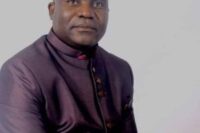
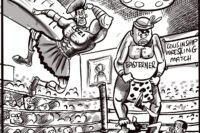
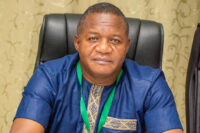

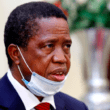


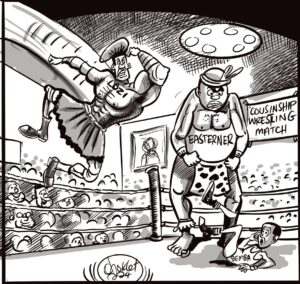

4 Responses
Attacks on Government officials and institutions of the Republic were unwarranted. What really mattered were records and posterity. The call for the removal of all Constitutional Court judges for gross misconduct and incompetence was a call that doomed to fall on deaf ears. The intelligentsia needed to petition or sue for remedial action instead of self-gratification through social media channels. All the judges were familiar with Constitutional law because Constitutional law was one of the core courses in legal training at Law School. In actual fact, one of them specialized in Human Rights Law. In addition, each one of them is free to conduct research using legal assistants and legal librarians. If a person could doubt every other person, then lack of trust is in itself problematic.
How does pointing out the fact that one is unqualified to hold office as per the constitution be deemed to be an unwarranted attack?
Holding a degree is one form of education and wisdom is God given education and I have observed educated people behaving with impunity and misdirecting people out of wrong usage of their education even in a house there can be wrongs but one doesn’t shout a song to the outside
Learned colleague